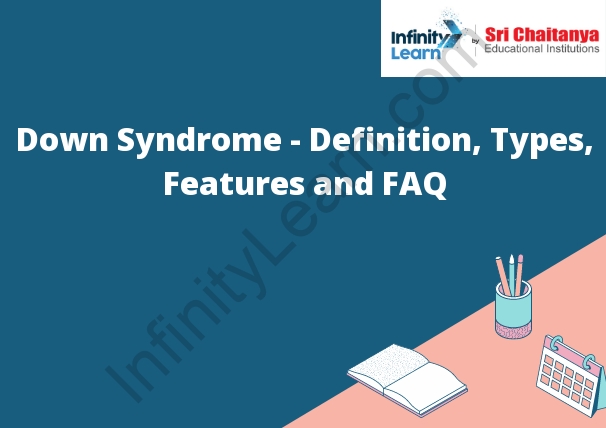Table of Contents
What is Down Syndrome?
Down Syndrome is a chromosomal disorder that is caused by the presence of an extra copy of chromosome 21. This extra chromosome causes physical and mental abnormalities that can range from mild to severe. Down Syndrome occurs in approximately 1 in every 800 births, making it the most common chromosomal disorder.

Types of Down Syndrome
Down syndrome is a genetic disorder that is caused by the presence of an extra chromosome 21. This extra chromosome causes developmental delays and a wide range of physical abnormalities. Down syndrome is the most common genetic disorder, affecting one in every 800-1,000 babies born in the United States. There are three types of Down syndrome: trisomy 21, translocation Down syndrome, and mosaic Down syndrome. Trisomy 21 is the most common form of Down syndrome, accounting for 95% of all cases. This type of Down syndrome occurs when an extra copy of chromosome 21 is present in all of the cells of the body. Translocation Down syndrome is caused by a rearrangement of the chromosomes in which part of chromosome 21 becomes attached to another chromosome. This type of Down syndrome accounts for about 2% of all cases. mosaic Down syndrome is the rarest form of Down syndrome, accounting for 3% of all cases. This type of Down syndrome occurs when some of the cells in the body have an extra copy of chromosome 21, while other cells have the normal number of chromosomes.
Down Syndrome Features
Down Syndrome is a genetic disorder that is caused by the presence of an extra copy of chromosome 21. This extra copy disrupts the normal development of the body and mind, leading to a wide range of physical and mental abnormalities. Some of the most common features of Down Syndrome include low muscle tone, small stature, a flat face, and an upward slant to the eyes. People with Down Syndrome also often have cognitive delays, and are at a higher risk for medical problems such as heart defects, hearing and vision impairments, and Alzheimer’s disease.
Management of Down Syndrome
There is no cure for Down syndrome, however there are treatments available to help manage the condition. Management of Down syndrome may include:
Physical therapy to help with muscle weakness and joint problems
Speech therapy to help with communication skills
Occupational therapy to help with daily activities
Medication to help with behavioral issues, such as aggression or hyperactivity
Education and support for the parents and caregivers of a child with Down syndrome
Health Screening
A health screening is a preventive measure that is used to identify any health risks that a person may have. It involves a physical exam and a review of the person’s medical history. The purpose of a health screening is to identify any health problems early, so that they can be treated before they become more serious.
Cognitive Development in Down Syndrome
Down syndrome is a chromosomal disorder that results when an individual has a full or partial extra copy of chromosome 21. This extra genetic material alters the course of development, leading to mild to moderate intellectual disability and a range of physical abnormalities.
Most individuals with Down syndrome have mild intellectual disability, although a small percentage have more severe disability. The degree of intellectual disability is related to the number of extra copies of chromosome 21 the individual has and is not related to other features of Down syndrome.
Cognitive development in Down syndrome is characterized by delayed milestones in the early years, followed by more gradual progress in later years. Children with Down syndrome typically reach developmental milestones such as sitting up, crawling, and walking later than other children.
Their language development is also delayed, and they often have difficulty with tasks that require abstract thinking, such as problem-solving and conceptualizing. However, many individuals with Down syndrome have average or above-average intelligence. With appropriate stimulation and support, they can achieve a high level of independence and quality of life.





